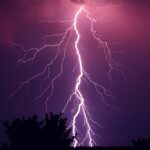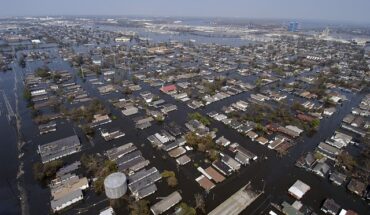Survival skills are not limited to the wilderness; they are equally relevant in urban environments. While the challenges may differ, urban survival is a crucial skill set to have in today’s fast-paced world. Whether you’re preparing for a disaster, navigating a city in crisis, or just looking to be more self-reliant, these urban survival tips will help you thrive in the concrete jungle.
1. Stay Informed
The first rule of urban survival is staying informed. Keep a keen eye on news and current events, as knowledge is your greatest asset. In times of crisis, knowing what’s happening can help you make informed decisions and avoid dangerous situations.
- Emergency Alerts: Sign up for emergency alerts and notifications through local government agencies, weather apps, and news outlets.
- Social Media: Follow relevant accounts on social media for real-time updates. Twitter is often used for emergency alerts.
- Scanner Radios: Invest in a police scanner or scanner app to monitor emergency services’ communications.
2. Develop a Survival Mindset
A resilient mindset is key to urban survival. Stay calm, think rationally, and adapt to changing circumstances. Mental preparedness can help you make the right decisions when faced with adversity.
- Stay Positive: Maintaining a positive attitude can boost your morale and help you find solutions even in challenging situations.
- Plan and Rehearse: Create contingency plans for various scenarios and rehearse them with your family. This ensures everyone knows what to do in an emergency.
3. Secure Safe Shelter
In urban environments, your home is your primary shelter. Ensure it’s a safe haven by taking these precautions:
- Reinforce Entry Points: Strengthen doors and windows with deadbolts, bars, or shatterproof film to deter intruders and protect against looting during a crisis.
- Fire Safety: Install smoke detectors and fire extinguishers in your home. Develop an escape plan and practice fire drills regularly.
- Emergency Supplies: Keep essential supplies, including water, non-perishable food, and a first-aid kit, in a designated area for emergencies.
4. Water and Food Security
In a disaster or crisis, access to clean water and food can become limited. Be prepared by following these guidelines:
- Water Storage: Store a sufficient amount of water for your household, around one gallon per person per day for at least three days.
- Food Stockpile: Maintain a supply of non-perishable food items such as canned goods, dried fruits, nuts, and energy bars. Rotate and replace these items periodically.
- Urban Foraging: Learn to identify edible wild plants in your area and make use of community gardens and fruit trees if available.
5. Personal Safety and Self-Defense
Urban environments can present safety challenges. Prioritize your personal security with these measures:
- Self-Defense Training: Consider taking self-defense classes to enhance your ability to protect yourself and your family.
- Emergency Contact: Share your whereabouts and plans with a trusted friend or family member. Establish check-in times during crises.
- EDC (Everyday Carry): Carry essential items like a flashlight, multitool, and a whistle with you daily. Pepper spray or personal alarms can also be valuable.
6. Navigation Skills
In urban environments, knowing how to navigate through unfamiliar territory can be vital. Here’s how:
- Maps: Keep a map of your city or neighborhood with important landmarks and routes marked.
- GPS and Compass: Have a GPS device or smartphone app with offline maps, and learn basic compass navigation skills.
- Scout Out Escape Routes: Identify multiple exit routes from your workplace, home, and other frequented locations.
7. First Aid and Medical Skills
Basic medical knowledge and a well-stocked first-aid kit are essential for urban survival:
- First-Aid Training: Take a basic first-aid and CPR course to handle injuries and emergencies effectively.
- First-Aid Kit: Assemble a comprehensive first-aid kit with bandages, antiseptics, pain relievers, and prescription medications if necessary.
- Know Nearby Medical Facilities: Be aware of the locations and operating hours of nearby hospitals and urgent care centers.
8. Hygiene and Sanitation
Maintaining hygiene during a crisis can help prevent illness:
- Sanitation Supplies: Stock up on personal hygiene items like soap, hand sanitizer, toilet paper, and garbage bags.
- Portable Toilet: Consider having a portable toilet or an emergency sanitation plan if access to facilities is limited.
9. Communication and Connectivity
Staying connected can be crucial during urban survival scenarios:
- Emergency Radio: Invest in a battery-powered or hand-crank emergency radio to receive updates and information when power is out.
- Portable Power Banks: Keep portable power banks charged to ensure your phone and other essential devices remain operational.
10. Build Community and Networks
Your neighbors and local community can be valuable resources in times of crisis:
- Neighborhood Watch: Join or establish a neighborhood watch program to increase security and communication within your community.
- Mutual Aid Groups: Connect with local mutual aid or community support groups to share resources and assistance during emergencies.
Best Urban Survival Tips
Urban survival requires a unique skill set and mindset compared to surviving in the wild. By staying informed, developing a survival mindset, securing your home, ensuring access to water and food, prioritizing personal safety, honing navigation skills, acquiring first aid knowledge, maintaining hygiene, staying connected, and building community networks, you can significantly enhance your urban survival preparedness. Remember that preparation is an ongoing process, and regularly revisiting and updating your plans and supplies is essential to thriving in the concrete jungle, no matter the challenges that come your way. Keep in mind that communication tools are incredibly important. Learn how to get your GMRS or amateur radio licenses and then buy a radio or two!














